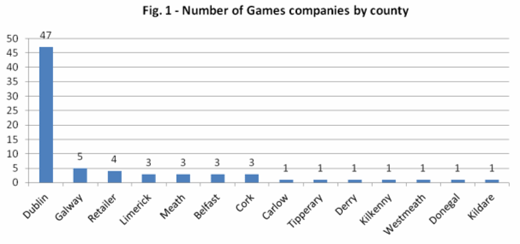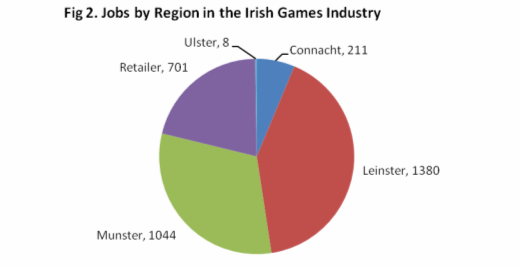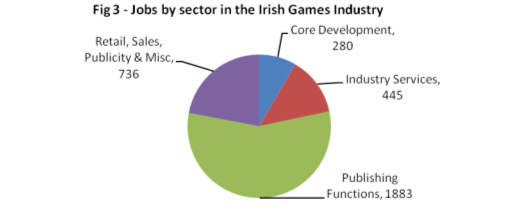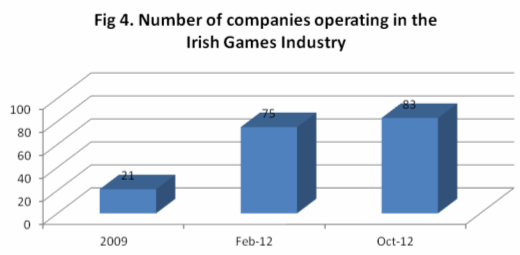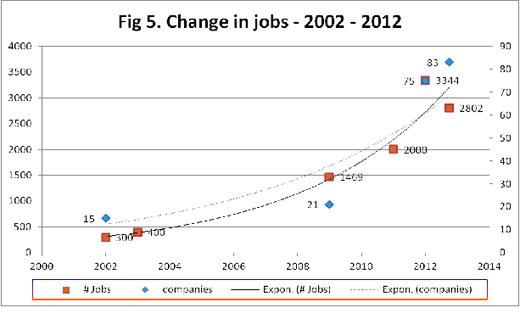As a frontman for numerous cover bands, and composer for RTÉ’s About the House, Mick Kiely played in front of a few audiences in his time, but nothing compared to the rowdy rabble that faced him in South America. After writing the soundtrack for Codemasters shooter Bodycount, the Irish composer travelled to Brazil to perform as part of touring orchestral production Video Games Live (VGL). Kiely stepped on stage with a strap-on keyboard in Rio de Janeiro, Porto Alegre, and São Paulo, and performed the Bodycount score while footage from the game played on a huge screen behind him.
Rather than sitting sedately, as is the norm at classical concerts, the audiences acted like they were at an Iron Maiden gig. “They were going mental,” laughs Kiely. “You can’t help thinking, that’s how Beethoven intended it to be back in his day. It was a great experience to see. It’s probably the first time in the history of classical music that young audiences have flocked to orchestral performances.”
The rapturous reception that greets VGL versions of gaming classics – whether Mario, Zelda, Mass Effect or Monkey Island – should come at no surprise to committed gamers. From the staccato blips of Pong to the creepy melodies of Silent Hill, or the soaring strings of Elder Scrolls IV: Skyrim, audio and music has always played an integral part of game design.
Music supports the emotional experience of the player, says Alan Duggan, who develops casual games at Galway-based Tribal City Interactive. “It’s an important part of the experience in the games we make – it sets the tone. I’ve often said that if we can get to a point with our games where we can affect you emotionally in the same way that a song does, then we have reached something special. It’s a very hard thing to do.”
Codemasters requested three separate types of music for Bodycount: orchestral, ethnic and electronic, so Kiely travelled to Bulgaria to work with a 60-piece philharmonic orchestra. He continues: “The ethnic instruments were recorded in Switzerland. We used shakuhachis, bamboo flutes and other ethnic wind instruments. There was a big dedication to African rhythms. I used a percussionist who had gone to Kenya and learned old battle rhythms with tribes. The electronica was done at my studio in Gorey.”

Kiely’s mammoth production was a far cry from casual games, so earlier this year Kiely travelled to the Game Developers Conference (GDC) in San Francisco to discuss casual games with established composers. “Most composers in the AAA sector have no interest in the casual game sector,” he says. “That’s a real problem for casual game developers when it comes to music. They either know somebody [who can work on the score], perhaps someone in a band, or they license it. But with licensing comes tonnes of problems…”
Music design is a skill unto itself. Developers are unlikely to be au fait with audio software, such as Logic or Pro-Tools. “When we want art for our games, we go to a game artist,” says Duggan. “It should be no different with music. To some extent, you might get away with a library of sound effects, particularly with casual games. But even then, you have to be able to articulate what you want in the sound. Otherwise, you often end up listening to hundreds of sound effects looking for the one you want. It’s obviously more expensive, but much easier from the developer’s perspective to have someone who knows what they are doing – whether it’s a composer or someone doing Foley [sound effects] – to create that effect for you.”
Kiely felt a sense of achievement when he wrapped his 10 months of work on Bodycount, but he also felt isolated as there was no community of game composers in Ireland. So in late 2011, he established Games Music Ireland (GMI), a portal that allows composers to learn about game development and network with game developers. Over 70 composers turned up at GMI’s first networking event in December, 2011.
Just as developers are unlikely to know much about music composition, Irish composers are uninformed about the games industry. “Composers are afraid because they don’t understand it – there’s no knowledge base,” says Kiely. “When I got the Bodycount job, they brought me to the Codemasters studios and I was terrified. I didn’t know what I was doing – I didn’t know how music worked in games and how it was implemented. I had to learn on the job.”
Music in games has evolved steadily over the years, yet memorable tunes were always integral to great gaming experiences. Early arcade classics like Defender had digital ditties that remain mind-bogglingly addictive to this day. Rob Hubbard (composer behind C64 classics like Ace II and Commando, famed for writing music in ones and zeroes on pub napkins), once said that the “limited polyphony of the sound hardware in consoles and home computers forced you to write in a certain style.”
Casual and social game developers face new audio challenges. With the advent of tablets and smartphones, a great audio experience is crucial. The interactive experience is markedly different in console games, where the composer has to reel in the player for hours. In a casual game, players dip in and out. Either way, the purpose of the music remains the same.
“Immersion is the key word here – the soundtrack helps the immersion,” says Claire Fitch, who designed music loops for Jolt’s Playboy Manager, Blender’s Yo Frankie!, Forfás game NanoQuest, and Torc’s Dreadnought. “The Dreadnought music was particularly tense, in line with the game,” says Fitch. “The colourful, cartoon-like world of Yo Frankie! needed a more cute sounding track. NanoQuest needed a soundtrack to really enhance concentration, and the stylised world of Playboy Manager needed hip-hop, pop and rock cues to help immerse the player into the game world.”

Limerick’s Open Emotion Studios also produced memorable casual game soundtracks. Ninjamurai crosses Eastern melodies with dance music, Mad Blocker Alpha is a mix of suspense music and classical, and Revoltin’ Youth is a homage to 1970’s jazz-funk and contemporary house. In choosing soundtracks, developers at Tribal City take cues from their game’s graphics. Into The Twilight, for example, was inspired by Tim Burton’s movies, so the developers sought a Danny Elfman inspired score. For Flip the Switch, they wanted something “cheeky and fun”.

The composing process for these two games was pointedly different. Tribal City had a tiny budget for Into The Twilight, so the team opted to license music from www.soundrangers.com. But licensed music has drawbacks.
“You’re always trying to make your game stand out and be unique,” says Duggan. “The music is a big part of that. Since Twilight was released two and a half years ago, I’ve come across its music once elsewhere. That’s not often, but we want an audio experience that is singular to our games. Because audio is so emotive, it’s one of the things that people will remember. You’re looking for a riff that sticks in your head. It’s the same concept as an advertisement.” For Flip the Switch, Tribal City hired a composer to create an original score.
StoryToys, the Irish development company formerly known as Ideal Binary, leapt to fame with their exquisite series of interactive books based on the Grimm Brother stories. The studio licensed music at first, although this was less than ideal, according to Jim Pipe, Product Manager. “The problem with licensing music is that ultimately a lot of the good stuff sitting around has been taken,” says Pipe. “It’s frustrating when you get a really good piece of music and then hear it on a poorly designed app a few months later.”

On 31 May, 2012, StoryToys will release their first original-IP app, which features a uniquely composed score. Pipe, who composed the score with the help of a few musicians, says the app is aimed at the pre-school market: “It’s for three years old and under. I was concerned that we couldn’t find licensed stuff gentle enough for this age group. I wanted to create a toy box feel in the music, so the main tune is played on a glockenspiel and vibraphone. The higher pitch sounds is a good fit for something like an iPhone or iPad.”
Memory capacity is a significant challenge in audio composition – graphics and audio consume the most amount of space. “There’s a struggle in game development where the art and graphics make up the game economy,” says Kiely. “Little is left to the audio. The audio also includes Foley – gunshots, etc – and dialogue. You have to find a way to put as little music content into the game as possible, so the game can produce a long-playing score.”
Although a casual developer is unlikely to work with a 60-piece orchestra, they can use tricks of the trade to emulate this effect, enhance the score, and make the most out of available memory. The standard technique is to loop music, although badly looped music can ruin an interactive music experience. “Because music is so emotive, if it annoys you, it will push you away pretty quickly,” says Duggan. “Seamless loops can be difficult to achieve.”
Creating loop distractions is an efficient compositional trick. “[In AAA games], if a piece of music is 60MB, you have to be able to reduce it to 10MB, but recreate that entire piece of music with clips, introducing tricks so the players do not realise they’re listening to loops,” says Kiely. “You might introduce another instrument into the loop, so all of a sudden it feels the score is evolving. In film, you have the luxury of an entire score that never has to change. But music in games is all smoke and mirrors. We have the technology whereby we can apply the same tricks of the trade to casual games, as we do in AAA gaming. This is what’s exciting for me – I think it’s where Game Music Ireland can come into play.”
In most casual and social games, music is a background asset, but composers and developers see no reason why casual game scores should not evolve. “Music plays tricks on your brain and rewires it in a certain way,” says Pipe. “I’d be very interested in developing something in the future in which the music and interaction is tightly locked in. The only way you can do that is to create stuff that is scored to tie in exactly with the app.”
Can casual and social developers, facing mounting budgetary challenges, afford to commission or create unique scores? Licensed music tends to involve a flat fee. Licensing songs from established bands – commonplace in AAA titles – often costs outrageous amounts. In the case of indie titles and bands – as in the case of Open Emotion’s upcoming RubberBandits title – finances can be more affordable. Kiely is under no illusions about the budgetary differences between Bodycount and the average casual venture.

“That’s why most composers working on AAA games are not really interested in casual games – because the money is not there,” he says. “Occasionally, there will be a semi-decent budget where you can record some orchestral stuff but that’s very rare. But with good samples, there’s a real opportunity for composers to make a difference in the games space, even with the budgets that are there now, whether we’re talking €10,000 or €500.”
Duggan and Pipe intend to keep creating original music for their games. Tribal City, who has five games in development, has outsourced a composer, Lemonmultimedia.com, for upcoming title Turtle Trouble. Pipe hopes to hire a composer for future StoryToys apps. “[Our business] has only really taken off over the last few months,” says Pipe. “In two or three months time, there’s no way I’m going to be able to focus on [music composition]. I partly did it so I could know what is involved before I commission anyone else.”
As traditional composers become increasingly informed about the casual game space, through projects such as Games Music Ireland, indie game audio can only improve. Whether you are a composer, developer, gamer or app user, this can only be music to everyone’s ears.
Games Music Ireland and Windmill Lane Recording Studios Present Composing for Games Module, June 11, 12, 13.
http://www.gamedevelopers.ie/news/viewnews.php?article=579
For more information: gamesmusicireland@gmail.com
See also:
www.mickkiely.com
www.fitchsounds.com
www.openemotionstudios.com
www.storytoys.com


